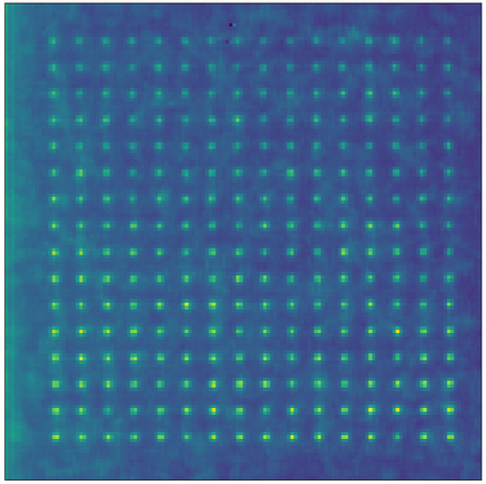Infleqtion, a leading global player in quantum information technologies, has announced a significant breakthrough in its quantum computing efforts, unveiling the largest reported 16×16 neutral atom array in the UK. This achievement is a major step toward the development of scalable quantum processors that could one day enable fault-tolerant quantum computing, offering real-world applications in fields such as optimisation, materials science, and beyond.
The demonstration of the 16×16 array was carried out as part of the Scalable Quantum Atomic Lattice computing tEstbed (SQALE) project, which focuses on advancing neutral atom quantum computing technologies. Infleqtion’s success is seen as a crucial milestone in the race to create reliable and efficient quantum processors capable of performing complex calculations far beyond the reach of traditional computers.
“We are now operating the largest reported neutral atom array in the UK, laying the groundwork for the nation’s leadership in fault-tolerant quantum computing,” said Tom Noel, Vice President of Quantum Computing at Infleqtion. “This milestone brings us closer to demonstrating the core technologies required for high-fidelity quantum gates and large-scale quantum processors, unlocking real-world applications in optimisation, materials science and beyond.”
The SQALE project is part of the National Quantum Computing Centre’s (NQCC) testbeds initiative, which aims to provide access to cutting-edge quantum technologies for researchers and industry partners. The initiative is key to accelerating the UK’s efforts to establish practical quantum computing solutions. Infleqtion’s success in demonstrating scalable atom trapping in 16×16 arrays at the NQCC’s Harwell Science and Innovation Campus has paved the way for the next phase of development, which includes integrating advanced gate laser systems to enable full quantum logic operations.
This achievement aligns with the UK’s goal of establishing a 100+ qubit quantum computing capability at the NQCC by 2025, a target that will further bolster the country’s standing in the global quantum race.
The ability to trap and manipulate large atom arrays is vital to the development of neutral atom quantum computing. Infleqtion’s work in this area relies on advanced vacuum, laser, and control systems, ensuring that qubit operations are carried out with high precision. The company’s Superstaq quantum software platform further optimises these atom arrays, making them more applicable to real-world challenges.
Looking ahead, Infleqtion plans to continue collaborating with the NQCC and key UK research partners, including Riverlane, QinetiQ, and the Oxfordshire City Council. The focus for the next phase of the SQALE project will be improving quantum logic gate fidelity, expanding the size of atom arrays, and benchmarking the system’s performance against potential applications in sectors such as secure communications, AI, and pharmaceutical research.
By working closely with government and industry stakeholders, Infleqtion aims to ensure that the breakthroughs made in quantum computing will translate into tangible benefits, transforming industries and addressing some of the world’s most pressing technological challenges.
As Infleqtion pushes the boundaries of quantum computing, the UK continues to position itself as a global leader in the race for quantum advantage, with the potential to unlock new realms of scientific and technological discovery.



